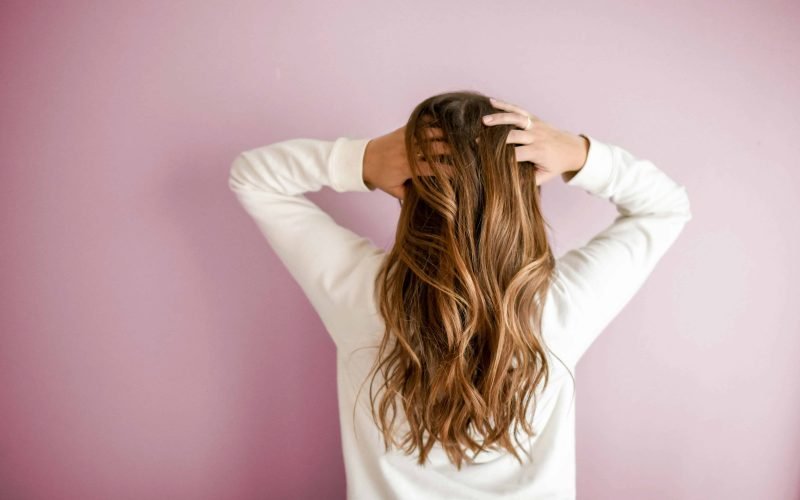In the world of hair care, the shift towards healthier, more sustainable practices is gaining momentum. Sulphate and paraben-free products are at the forefront of this movement, offering benefits that go beyond mere cleanliness to promote stronger, healthier hair. This article explores top hair care routines that harness the power of these gentle formulations, helping you to achieve beautiful locks without compromising on health.
Understanding Sulphates and Parabens
Before diving into the routines, it’s important to understand why many are choosing to avoid sulphates and parabens. Sulphates, primarily used as detergents in shampoos, are known for their deep cleaning properties but can strip natural oils from your hair and scalp, leading to dryness and irritation. Parabens, used as preservatives, are controversial due to their potential health risks, including hormonal disruptions.
The Benefits of Sulphate and Paraben-Free Products
Switching to sulphate and paraben-free hair care products can significantly improve your hair’s health. These products maintain the natural oil balance of your scalp, promoting moisture retention, reducing irritation, and enhancing hair texture and shine. Additionally, they are often enriched with natural ingredients that provide essential nutrients to the hair follicles.
Essential Steps in a Sulphate and Paraben-Free Hair Care Routine
1. Cleansing:
The foundation of any good hair care regimen starts with cleansing. When selecting a shampoo, opt for sulphate-free options that utilize natural surfactants. These gentler alternatives clean without stripping hair of its essential oils, which are crucial for maintaining natural moisture levels. Look for ingredients like coconut oil, aloe vera, and tea tree oil. Coconut oil is excellent for its moisturizing properties, aloe vera soothes the scalp while hydrating, and tea tree oil offers antiseptic benefits that help maintain scalp health. Together, these components ensure a thorough cleanse that also nourishes your scalp and hair.
2. Conditioning:
After cleansing, conditioning is a vital step. Paraben-free conditioners enriched with natural moisturizers such as shea butter, argan oil, or jojoba oil are ideal. Shea butter is rich in fatty acids and vitamins, making it excellent for conditioning and protecting hair. Argan oil, often called ‘liquid gold’, is renowned for its reparative and nourishing properties, and jojoba oil closely mimics the oil naturally produced by the scalp, helping to regulate oil production. Regular use of these conditioners helps to detangle hair, leaving it smooth, soft, and manageable.
3. Deep Conditioning Treatments:
To further enhance your hair’s health, integrate a deep conditioning treatment into your weekly routine. Products formulated with natural oils and butters, such as avocado oil or cocoa butter, can provide intense hydration and repair. These treatments penetrate deeper into the hair shaft to restore vitality and strengthen hair from within. They are particularly beneficial for those with dry, brittle, or damaged hair, as they replenish moisture and improve hair elasticity.
4. Styling:
Styling products are often laden with chemicals that can damage hair over time. Opting for natural or organic styling products can make a significant difference. These sulphate and paraben-free products, ranging from serums to mousses, offer a healthy alternative that provides hold and style without the adverse effects of synthetic ingredients. They often contain botanical extracts and natural oils that enhance hair’s texture and shine while providing a flexible hold.
5. Regular Trims:
Regular trims are crucial to maintaining healthy hair. They help prevent split ends and breakage, which can lead to frizz and unruly hair. By trimming your hair every 6-8 weeks, you ensure that your hair looks neat and grows healthier. Regular trims are an integral part of any hair care routine, contributing significantly to the overall health and appearance of your hair.
Tips for Transitioning to Sulphate and Paraben-Free Hair Care
Switching to a sulphate and paraben-free hair care routine can be a smooth transition if approached thoughtfully. Begin by gradually replacing your current products one at a time. This gradual change allows you to monitor how your hair reacts to each new product, ensuring that each step enhances your hair’s health without overwhelming it. Over time, you’ll likely observe a noticeable improvement in your hair’s texture and overall health, becoming softer, shinier, and more resilient to damage. Adjust your routine as necessary to cater specifically to your hair’s evolving needs, embracing this healthier approach to hair care.
Conclusion
Adopting sulphate and paraben-free hair care routines is not just a passing trend; it represents a dedicated commitment to healthier, more sustainable beauty practices. By selecting products that are kinder to your locks, you actively contribute to enhancing the overall health and appearance of your hair. This approach not only supports the use of environmentally friendly and safer products but also aligns with a broader commitment to responsible beauty standards. Ultimately, remember that healthy hair is synonymous with beautiful hair. With the right care and mindful product choices, your hair can flourish, free from the harsh effects of damaging chemicals.





